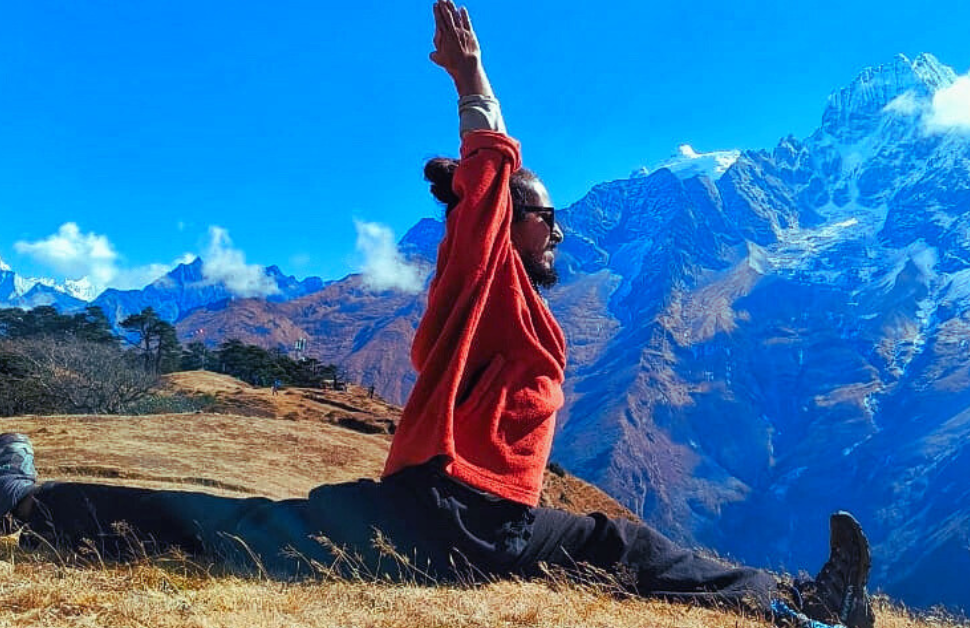Can hiking heal depression? Many of you may have this question. In the hustle and bustle of modern life, where stress and anxiety seem to be constant companions, finding effective methods for mental well-being has become more crucial than ever. The pressures of daily responsibilities, constant connectivity, and fast-paced routines often leave little room for self-care and relaxation. Amidst the myriad of therapeutic options available, hiking stands out as a surprisingly simple yet profoundly beneficial practice.
This outdoor activity offers a unique blend of physical exertion and mental respite. Unlike more structured forms of therapy or exercise, hiking integrates the healing power of nature with the benefits of physical movement. As individuals navigate trails and immerse themselves in natural surroundings, they experience a break from the relentless pace of modern life. This immersion in nature has been increasingly recognized for its ability to reduce stress, lower anxiety levels, and enhance overall mental clarity.
The serene environment and rhythmic motion of hiking help create a sense of peace and balance, offering a refreshing counterbalance to the demands and pressures of everyday life. Similarly, Ayurveda emphasizes the importance of connecting with nature and balancing the body’s energies through holistic practices, reinforcing the therapeutic benefits of outdoor activities like hiking.
The Healing Trail
Nature’s Panacea
Stepping into nature’s embrace is like opening a portal to tranquility. The serene landscapes, rustling leaves, and fresh air work in harmony to create an environment conducive to mental well-being. Scientifically, exposure to nature is linked to reduced stress, anxiety, and depression.
The Physiology of Hiking
Engaging in physical activity is a well-established method to combat depression. Hiking, with its varying terrains and elevations, becomes a holistic workout that not only benefits the body but also stimulates the release of endorphins – the body’s natural mood lifters.
Mindful Exploration
Hiking necessitates a level of mindfulness, an immersion in the present moment. The rhythmic sound of footsteps, the play of sunlight through the trees, and the scent of pine needles create a sensory experience that diverts attention from negative thoughts, fostering mental clarity.
Can Hiking Heal Depression?

Connecting with Nature
Depression often brings a deep sense of isolation, making it hard to feel connected to the world around you. Hiking, particularly in natural settings, offers a chance to bridge this gap. When you immerse yourself in nature, the beauty and tranquility of the environment can help counteract feelings of despair. The awe-inspiring sights of a lush forest or a majestic mountain range can provide a fresh perspective, lifting you out of your mental rut. This connection with the natural world isn’t just a temporary distraction; it can genuinely shift your mindset, helping to alleviate the weight of depression and reconnect you with a sense of wonder and possibility.
Building Resilience
Hiking through difficult trails can be a great way to mirror and tackle life’s challenges. When you push yourself to get through tough parts of a hike, you gain a sense of accomplishment. This feeling of success and progress can help build your inner strength and resilience.
In simple terms, as you conquer obstacles on a hike—whether it’s climbing a steep hill or navigating a tricky path—you experience a boost in confidence. This boost is crucial when dealing with depression because it helps you feel more capable and strong. Just like overcoming challenges on the trail, these small victories can make you feel more positive and hopeful.
So, hiking can be more than just exercise; it can help you develop the mental toughness and resilience needed to handle life’s difficulties and improve your overall mental health
Social Interaction
Hiking doesn’t have to be a solo activity; it also provides great chances to connect with others. Joining group hikes or spending time on the trail with friends can create a supportive community. This social interaction is important because it helps lessen the feelings of loneliness and isolation that often accompany depression. By sharing the hiking experience with others, you gain not only the benefits of exercise and nature but also the emotional support and companionship that can significantly boost your mental well-being.
How to Harness the Healing Power of Hiking:

Start Small, Go Gradual
If you’re new to hiking, begin with shorter, less challenging trails. As you build stamina and confidence, gradually progress to more demanding routes.
Embrace Mindfulness
While hiking, consciously engage your senses. Listen to the sounds of nature, feel the ground beneath your feet, and observe the sights around you. This mindful approach enhances the therapeutic benefits of the activity.
Set Realistic Goals
Establish achievable hiking goals. Whether it’s conquering a specific trail or hiking a certain distance, setting and achieving realistic goals can boost your self-esteem and motivation.
Equip Yourself
Invest in proper hiking gear, including sturdy footwear and weather-appropriate clothing. Being prepared ensures a more comfortable and enjoyable experience.
In Conclusion
Hiking offers a powerful and holistic approach to improving mental health, particularly for those struggling with depression. By combining physical exercise with the calming influence of nature, hiking helps reduce stress, lower anxiety, and enhance overall mental clarity. The sense of achievement from conquering trails and the mindfulness gained from immersing in nature contribute to a stronger sense of resilience and well-being.
Additionally, hiking provides opportunities for social interaction, which can counteract feelings of isolation and loneliness often associated with depression. Joining group hikes or sharing the experience with friends adds a layer of emotional support and camaraderie.
To make the most of hiking for mental wellness, start with manageable trails, engage fully with your surroundings, set realistic goals, and use appropriate gear. While hiking isn’t a cure-all, it offers a valuable and accessible way to support mental health and well-being. Each hike is a step towards healing and improved mental health.




